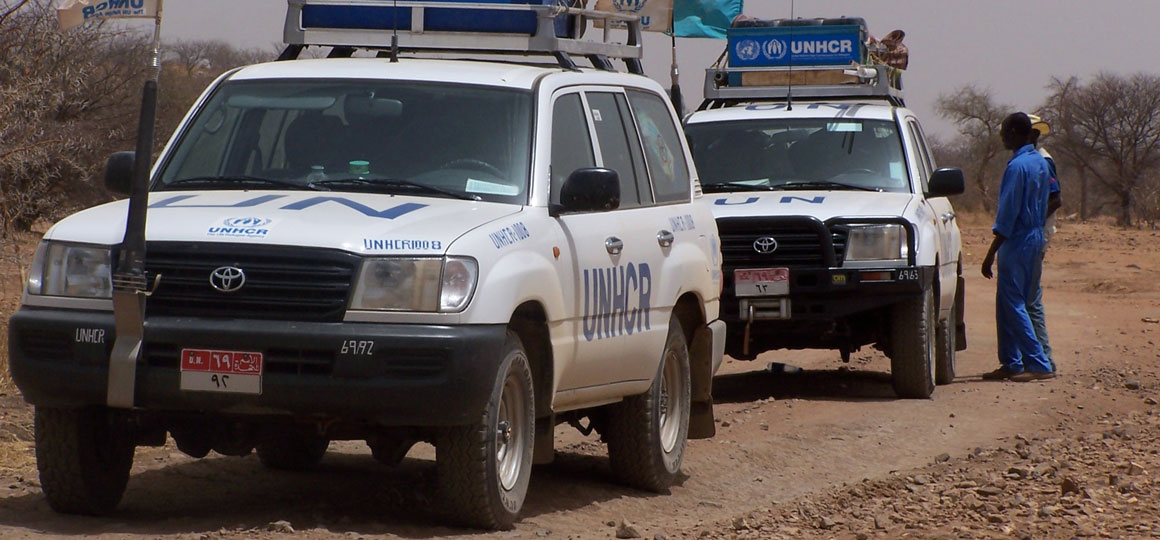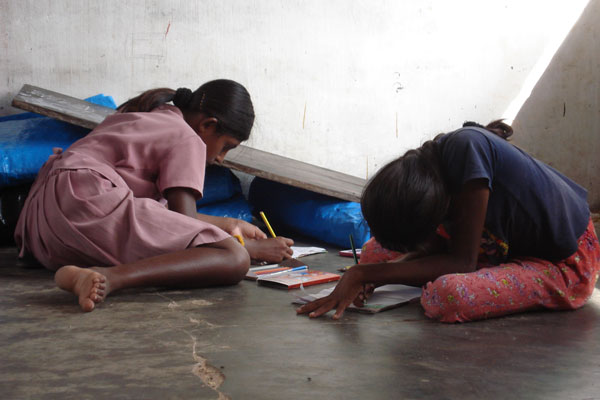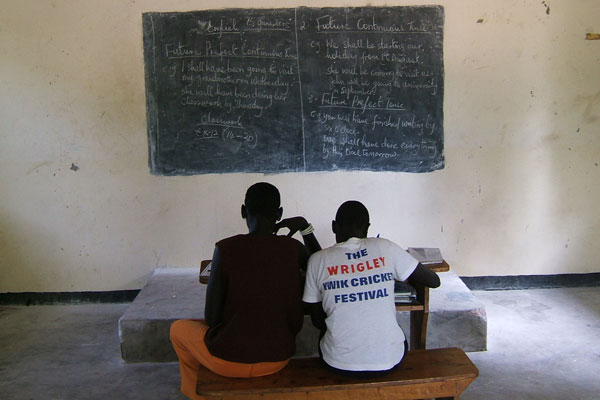
MSc International Humanitarian Affairs (online)
Explore the changing nature of humanitarianism in this unique course, taught entirely online
Year of entry: 2026 (September)
Engage with the philosophical and theoretical emergence of the concepts of humanitarianism.
We offer an opportunity for you to explore fast-changing, contemporary debates over the theory, policy and practice of humanitarian affairs. You will have the opportunity to network with like-minded experts, academics and policymakers from around the world who are responding to disasters, conflicts and complex political emergencies.
Course content
Our team brings expertise from Sub-Saharan and West Africa, the Middle East, Asia and Latin America, and experience of responding in real-time to tsunamis, earthquakes, floods, civil conflicts and many other disasters. They are conducting research and practice-oriented projects in most disaster- and conflict-affected countries in collaboration with the UN, INGOs, national governments and communities to challenge policy and practice to be effective, efficient and relevant.
This course will enable you to:
- develop how you understand and respond to humanitarian needs in complex operational contexts such as violent conflict, natural hazards and political crises
- examine and analyse contemporary issues, challenges and dilemmas using social, political, cultural, economic and environmental perspectives, lived experience of crisis-affected communities and changing policy debates as well as the technical approaches of the main humanitarian sectors
- gain advanced academic and policy skills and learn how to use theory to maintain good practice
- experience teaching led by a dedicated team of academic staff, policymakers and practitioners in the field of humanitarian affairs.
The course leader is Dr Jo Rose. Other staff from the Department of Health Sciences and our associates and collaborative organisations also contribute.
Modules
This course is delivered in three main stages over two years: Taught Component (Year 1), Taught Component (Year 2), and MSc (Year 2 with the completion of the dissertation).
Taught component - Year 1
You will take core modules, which may include:
- Examining Humanitarianism
- Protection and Assistance in International Humanitarian Law
- Humanitarian Response: Food and Nutrition, Shelter, Health and WASH
Taught component - Year 2
Core modules
You will take core modules, which may include:
Option modules
You will take a selection of option modules, examples of which may include:
- Education in Emergencies
- Evaluating Humanitarian Programmes
- Communities in Humanitarian Affairs
- Disasters in Complex Political Emergencies
- The Climate Crisis
The third component is your dissertation.
Our modules may change to reflect the latest academic thinking and expertise of our staff, and in line with Department/School academic planning.
Dissertation
To successfully complete the course, you will have to complete a dissertation based on an original research project.
The dissertation will allow you to design, implement and finalise your own research project with a final research report. The module encourages you to conduct your dissertation research on a subject or research question that is stimulating to you as well as important to the field of contemporary humanitarian affairs.
You will receive a personal supervisor for your dissertation who will offer you support throughout the research period.
Learning outcomes
Every course at York is built on a distinctive set of learning outcomes. These will give you a clear understanding of what you will be able to accomplish at the end of the course and help you explain what you can offer employers. Our academics identify the knowledge, skills, and experiences you'll need upon graduation and then design the course to get you there.
Learning outcomes for this course
- critically evaluate humanitarian crises, and responses to them, drawing on an advanced understanding of the dynamic relationship between humanitarian affairs theory, policy and practice
- appraise the design and delivery of humanitarian projects to improve the impact, efficiency and effectiveness of responses to humanitarian crises
- use strategic and innovative thinking to deal with the challenges of humanitarian crises
- coordinate, cooperate and communicate effectively with different cultures and organisations, and collaborate with disaster and conflict affected communities as equal partners of change
- carry out accurate, ethical, evidenced-based academic, policy and practice research into humanitarian affairs using an appropriate range of methodological skills and presenting the results in
- audience-appropriate formats
- operate as ethical professionals, based on knowledge of contemporary protection and legal frameworks of humanitarianism and their challenges
- approach humanitarian work with humility, demonstrated through their ongoing personal reflection on practice
Fees and funding
Annual tuition fees for 2026/27
| Study mode | UK (home) / International and EU |
|---|---|
| Part-time, distance learning (2 years) This is the year 1 fee. Fees for future years are subject to confirmation. |
£7,020 |
For courses which are longer than one year, the tuition fees quoted are for the first year of study.
- UK (home) fees may increase in subsequent years (up to a maximum of 2%).
- International fees may increase in subsequent years in line with the prevailing Consumer Price Index (CPI) inflation rate (up to a maximum of 10%).
Fees information
UK (home) or international fees? The level of fee that you will be asked to pay depends on whether you're classed as a UK (home) or international student. Check your fee status.
Find out more information about tuition fees and how to pay them.
Additional costs
We don't anticipate there being any additional costs to study this course. The tuition fees cover the learning and reading materials, access to the University of York library and various humanitarian databases. Depending on how you like to work, you may wish to print some documents out - this may incur an additional cost, but that will be dependent on your own preference and working styles.
Departmental funding
- Florence Nightingale Foundation - scholarships for midwives
Teaching and assessment
You’ll work with world‐leading academics who’ll challenge you to think independently and excel in all that you do. Our approach to teaching will provide you with the knowledge, opportunities and support you need to grow and succeed in a global workplace.
Teaching format
The course is primarily taught through our Virtual Learning Environment (VLE). All your course materials will be provided through the VLE.
We combine a variety of learning techniques including interactive discussion groups and seminars led by practitioners, academic staff and course partners. We are constantly updating and exploring new learning technologies and developing new ways to provide the course material using the most effective methods.
You'll use a wide variety of learning tools, including:
- Participatory learning and teaching
- Experiential and problem-solving approaches
- Interactive online discussions
- Collaborative exercises and case study materials
- Webinars for each module with leading experts
- Bespoke study materials
- Private study exercises
- Access to the extensive online library
Facilities
As a distance learner, you'll also have the opportunity to access e-support from the Writing and Language Skills Centre at the University.
Assessment and feedback
You will be assessed throughout the course in theory, policy and practice elements. You will have to successfully complete all areas to be able to progress.
A variety of assessment methods including critical essays, analytical reports, posters and proposals will be used. You will be given individual written assessment feedback for every piece of assessed work. You can request detailed feedback either through an email or a Skype meeting.
Careers and skills
Our students come from a wide variety of backgrounds, and many are working full-time jobs in real-time humanitarian responses where they can take full advantage of the flexible nature of the course.
The learning and teaching on the course enables you to build upon the practical knowledge gained from your professional experience with cutting-edge theory and an insight into humanitarian policy-making. Successful completion of the course leads to a globally recognised qualification.
Our graduates have gone on to leading roles in governmental and non-governmental organisations, the United Nations and charities, working in areas affected by disasters and conflicts around the world. Their work spans the humanitarian and development spectrum, from camp management to advising the UN and governments on humanitarian responses. Many go on to further study at York and other leading universities.
Career opportunities
- Policy analyst
- Development Policy Officer
- Partnership Liaison Officer
- Fundraising and communications manager
- Journalist
- Human Rights Officer
Transferable skills
- Collaborate with affected populations as equal partners
- Analytical and critical skills to engage at policy and practice levels
- Creativity and imagination to respond to complex and challenging emergencies
- The ability to facilitate positive change and response improvement
- The ability to undertake reflective independent learning
- The ability to research, source and examine information thoroughly
- The capacity to critically analyse evidence and construct coherent arguments
- Intellectual independence and autonomy
- A flexible and open-minded approach to work
Entry requirements
| Qualification | Typical offer |
|---|---|
| Undergraduate degree | 2:2 or equivalent in a relevant subject. We are willing to consider applications from those who do not have the appropriate qualifications but have suitable humanitarian and development experience through working with the United Nations, international humanitarian and development organisations, government authorities, community-based groups or local charities. |
| Other international qualifications | Equivalent qualifications from your country |
English language
If English isn't your first language you may need to provide evidence of your English language ability. We accept the following qualifications:
| Qualification | Minimum requirement |
|---|---|
| IELTS (Academic and Indicator) | 6.5, minimum 6.0 in each component |
| Cambridge CEFR | B2 First: 176, with 169 in each component |
| Oxford ELLT | 7, minimum of 6 in each component |
| Oxford Test of English Advanced | 136, minimum 126 in each component |
| Duolingo | 120, minimum 105 in all other components |
| LanguageCert SELT | B2 with 33/50 in each component |
| LanguageCert Academic | 70 with a minimum of 65 in each component |
| Kaplan Test of English Language | 478-509, with 444-477 in all other components |
| Skills for English | B2: Merit overall, with Pass with Merit in each component |
| PTE Academic | 61, minimum 55 in each component |
| TOEFL | 87, minimum 21 in each component |
| Trinity ISE III | Merit in all components |
For more information see our English language requirements.
Next steps
Contact us
Get in touch if you have any questions




